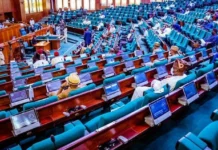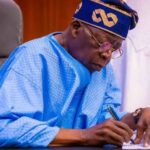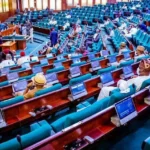The United Kingdom has threatened to ban anyone guilty of electoral violence ahead of the Ondo and Edo governorship elections.
In a statement on Tuesday, the UK embassy in Nigeria also threatened to seize overseas assets of such persons.
Nigeria’s elections are usually marred with violence occasions by thuggery and snatching of election materials, as was the situation in recent elections in Kogi and Bayelsa states.

In a statement via its Twitter handle, the UK said it will send observers for the upcoming elections in the two states.
“As a friend and partner of Nigeria we are closely following the lead up to the off-cycle governorship elections in Edo and Ondo states scheduled for September 19 and October 10 respectively,” it said.
“These elections are important, both as an essential element of effective governance within both states and an indicator of the strength of Nigeria’s democratic institutions.

“We will be deploying observation missions to both the Edo and Ondo elections and supporting civil society led observation.
“The UK takes a strong stand against election-related violence and, just as we did in the general election in 2019, will continue to take action against individuals we identify as being responsible for violence during the elections.
“This could include restrictions on their eligibility to travel to the UK, restrictions on access to UK based assets or prosecution under international law.
“The UK will continue to provide support and engagement as we move towards these elections. We urge INEC, the Police and all other agencies involved to work together to deliver free, fair and credible elections.”

It added that Catriona Laing, UK high commissioner to Nigeria, has met with leaders of the All Progressives Congress, APC, and the Peoples’ Democratic Party, PDP, during which she called for a hitch-free election.
“The discussions focused on the need for the parties’ leaders to prevail on supporters to avoid violence before and after the elections,” the statement read.
“And we welcome the Edo candidates’ signature of the National Peace Committee and INEC convened peace accord.”
The warning from the UK comes a day after the United States placed a visa ban against individuals who compromised recent governorship elections.
Yesterday, SCOOPER reported that former Governor of Edo State and ex-National Chairman of the All Progressives Congress, Adams Oshiomhole, is among top Nigerians slammed with a visa ban by the United States Government on Monday, it was learnt.
Kano State governor, Abdullahi Ganduje, and Kogi governor, Yahaya Bello, are also among those affected by the latest U.S. sanction, it was gathered.
Governor Nasir el-Rufai of Kaduna on the other hand had his own visa ban extended.
He has been banned from entering the US since 2010 over a graft case.
According to U.S. officials, more Nigerian politicians may be included on the visa ban list after the Edo governorship election if they are involved in electoral malpractice.
Those affected by the latest visa ban have received notification by email and or text messages, it was learnt.
A statement by spokesperson for the Department of State, Morgan Ortagus, on Monday said those issued visa bans received the sanction for undermining democracy in Nigeria.
It reads, “In July 2019, we announced the imposition of visa restrictions on Nigerians who undermined the February and March 2019 elections. Today, the Secretary of State is imposing additional visa restrictions on individuals for their actions surrounding the November 2019 Kogi and Bayelsa states elections and in the run up to the September and October 2020 Edo and Ondo states elections.
“These individuals have so far operated with impunity at the expense of the Nigerian people and have undermined democratic principles.
“The Department of State emphasises that the actions announced today are specific to certain individuals and not directed at the Nigerian people. This decision reflects the Department of State’s commitment to working with the Nigerian Government to realise its expressed commitment to end corruption and strengthen democracy, accountability, and respect for human rights.”










